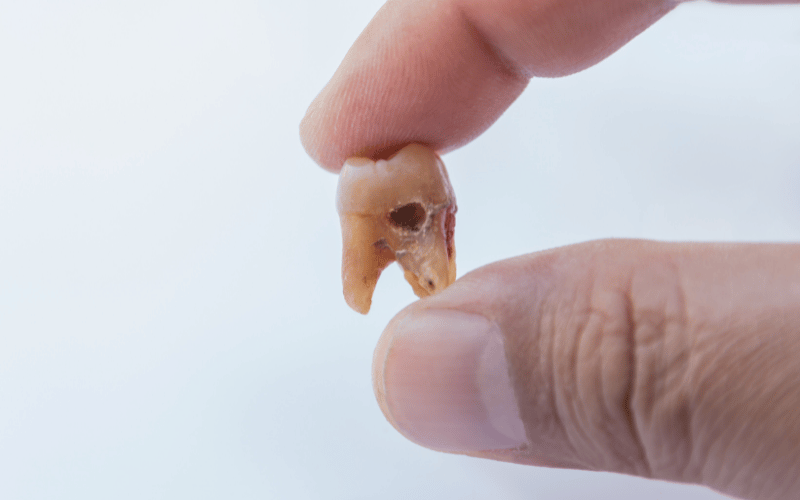Introduction
In the world of dental health, there’s an enemy that lurks in the shadows, often going unnoticed until significant damage is done. This silent adversary is tooth decay, commonly referred to as caries or cavities. When left untreated, tooth decay can escalate, causing pain, discomfort, and even permanent damage to one’s teeth.

Understanding and recognizing the early signs of tooth decay is paramount to maintain a healthy smile. Often, the onset of this dental ailment is subtle, manifesting through seemingly harmless symptoms. However, these small signs, if consistently overlooked, can snowball into larger, more detrimental issues. It’s vital to arm oneself with knowledge about these early symptoms, ensuring timely intervention and the right preventive measures.
But why is early detection so crucial? Well, early-stage tooth decay is more manageable and often reversible. Acting swiftly can prevent further complications, potentially save a tooth, and eliminate the need for more intensive and costly dental procedures in the future. This article aims to be your ally in this endeavor, highlighting the top 10 symptoms of tooth decay. By the end, you’ll be better equipped to notice the nuances, ensuring your dental health remains in top-notch condition.
Symptom 1: Tooth Sensitivity

Tooth sensitivity, often brushed off as a minor annoyance, can be an early harbinger of tooth decay. The initial discomfort, a sharp pain triggered by hot, cold, sweet, or sour consumables, arises due to the wearing away of the enamel. As the protective barrier diminishes, the more sensitive dentin layer gets exposed.
Yet, why does this happen? The enamel, although the hardest substance in the human body, isn’t invincible. Acidic foods, aggressive brushing, or even genetics can contribute to its gradual erosion. As it thins out, nerve endings in the dentin become more vulnerable, reacting to temperature and pressure changes.
It’s essential not to ignore this symptom. Left unchecked, the decay can progress, leading to more significant dental issues. Using toothpaste specifically designed for sensitive teeth can offer temporary relief, but it doesn’t address the root problem.
To tackle tooth sensitivity effectively, one must consider a holistic approach. This includes a review of one’s dietary habits, brushing techniques, and regular dental check-ups. Addressing the issue early on not only prevents further pain but also safeguards the overall health of the teeth. While tooth sensitivity might seem trivial, it’s a clear sign that the enamel is compromised. Timely action can halt the progression of decay, ensuring a pain-free and healthy dental future. (1)